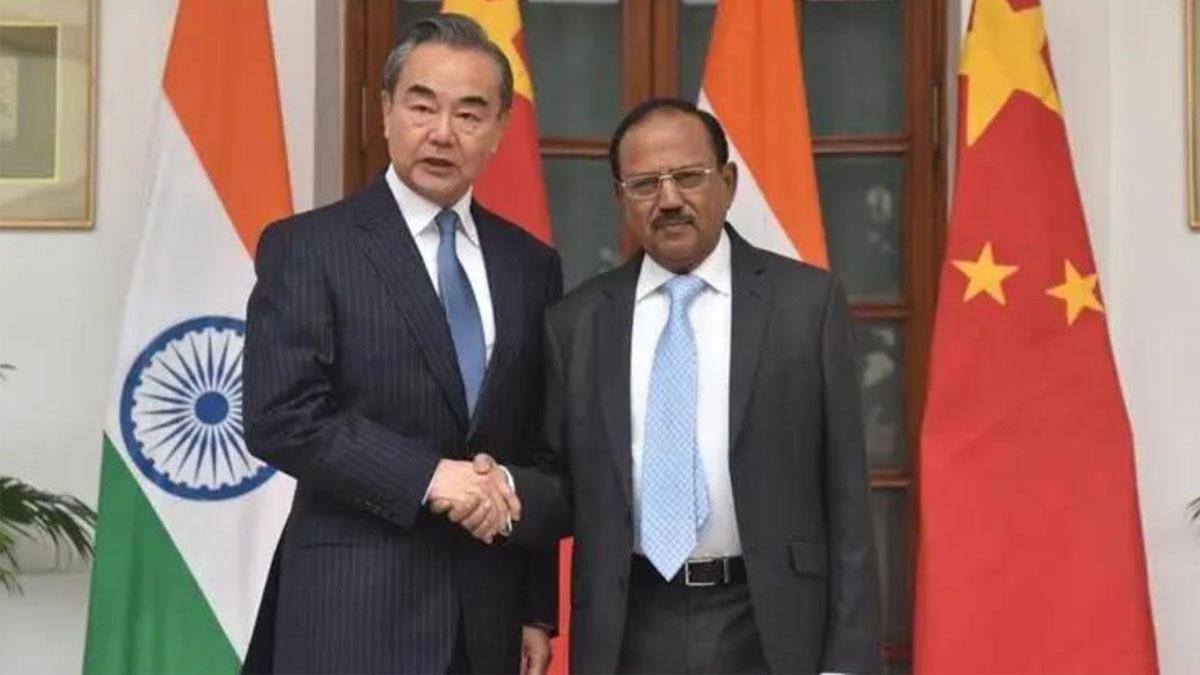Wang Yi said he was quite willing to work with Ajit Doval, NSA, for the proper handling of issues pertaining to the current border situation in eastern Ladakh. His statement came amid a prolonged border dispute between the two nations.
While congratulating Doval on his re-appointment as India's national security advisor and Special Representative for the India-China boundary negotiations, Wang said, "The China-India relationship is not a regional relationship; it's beyond the bilateral relationship and it has more global growing significance.".
Wang, also China's Special Representative in the India-China border talks, said that China and India are both the world's most populous developing countries and emerging economies. He reaffirmed his readiness to work with Doval to implement the important consensus reached by the leaders of the two countries, solve the problems on the ground of the border areas, and jointly safeguard peace and stability in these regions, state-run Xinhua news agency quoted him saying.
This message from Wang follows his recent meeting with Indian External Affairs Minister S Jaishankar on the sidelines of the Shanghai Cooperation Organisation summit in Astana, Kazakhstan. The meeting was first high-level interaction between Indian and Chinese officials after the formation of Prime Minister Narendra Modi's third government following recently concluded general elections in India.
Established in 2003 to oversee the complex India-China border dispute that runs for 3,488 km, the mechanism is headed by India's NSA and the Chinese Foreign Minister. Though it met 19 times, the mechanism has not been able to deliver a breakthrough yet; it has, however, come in handy in keeping at bay recurring tensions between the two countries.
Except for trade, the relations between India and China deteriorated since the border standoff in eastern Ladakh began on May 5, 2020, following a violent clash in the Pangong Tso area near Galwan. Since then, the two sides conducted 21 rounds of Corps Commander-level talks to resolve the standoff; the 22nd round was scheduled.
A consensus, according to the Chinese Military, has been reached between the two countries on disengagement at four points: Galwan Valley, Pangong Lake, Hot Springs and Jianan Daban or Gogra in eastern Ladakh. India is pushing for the withdrawal of the PLA from Depsang and Demchok areas and has told Beijing that normalcy in bilateral ties cannot be restored while conditions on the border remain unsettled.
On the other hand, China continues to insist that the boundary question is but one component of China-India relations and should be handled with great care within the context of the overall bilateral relationship.
Read also | Expansion of Colombo Security Conclave: Bangladesh Joins as Fifth Member
Read also | PM Modi Hails Austria Visit as Historic and Productive, Strengthening Bilateral Ties


















